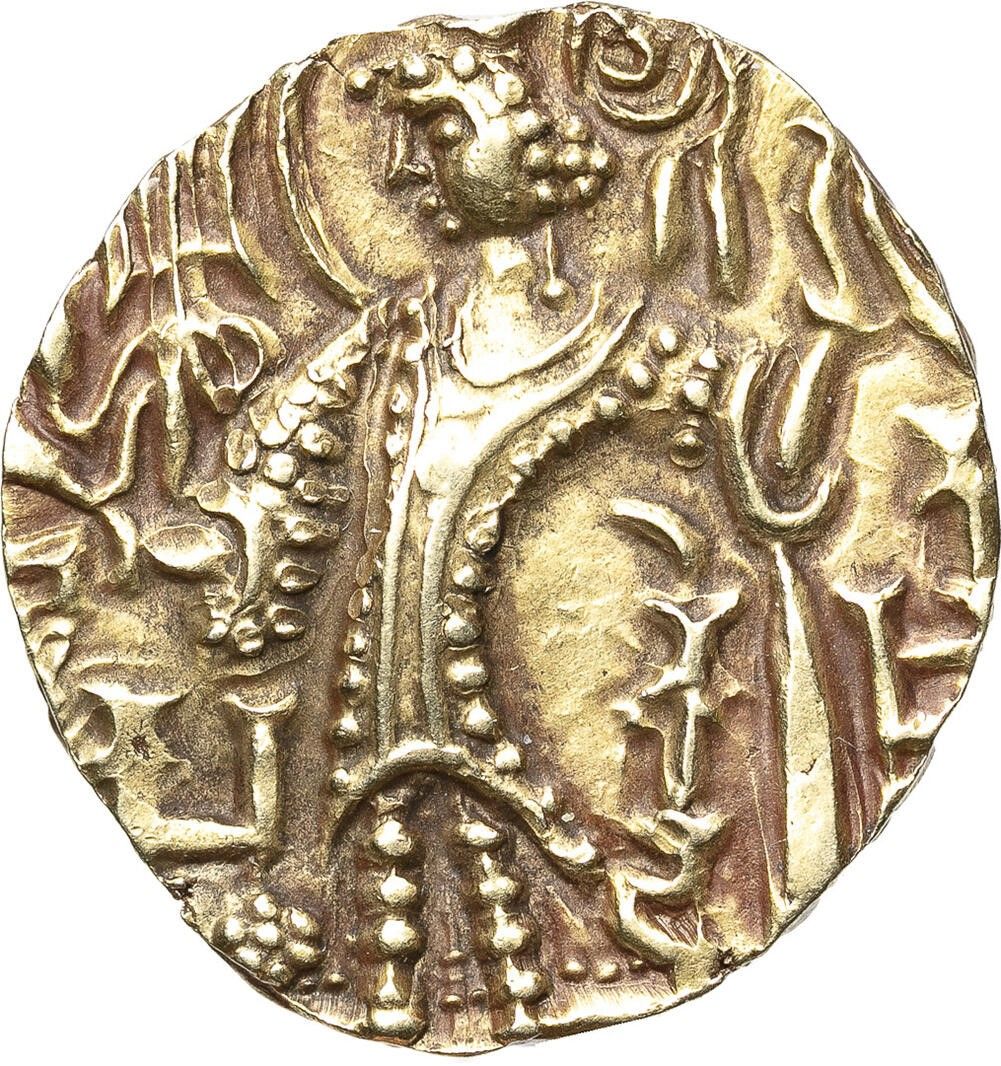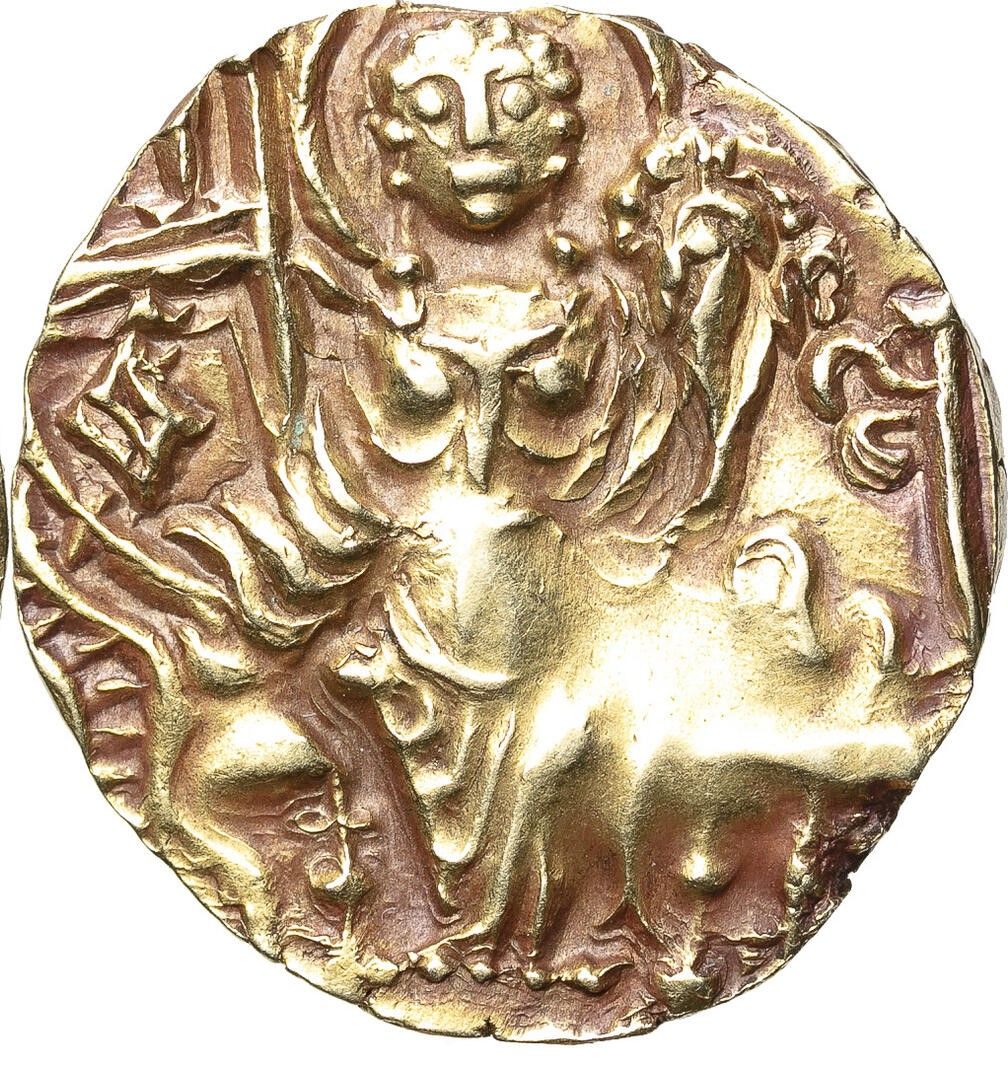

Kidarite Kingdom 1 Dinar - Kidarite Huns
Description:
Dinar 1 Dinar - Kidarite Huns coin from Kidarite Kingdom. Design, history & value.
Introduction
The 1 Dinar coin from the Kidarite Kingdom stands as a testament to the rich numismatic heritage of ancient Central Asia. This coin, minted between 360 and 457, offers a captivating glimpse into the artistic prowess and historical significance of the Kidarite Huns.
Historical Background
The Kidarite Kingdom, also known as the Kidarite Huns, was a powerful Central Asian empire that rose to prominence during the 4th and 5th centuries. As issuers of the 1 Dinar coin, the Kidarites left a lasting legacy in the numismatic world, blending influences from various cultures in their coinage.
Coin Images
 Obverse
Obverse
 Reverse
Reverse
Design Features
The obverse of the 1 Dinar coin showcases a formalized Kushan-style king performing a leftward sacrifice over an altar. Surrounding the king are intricate symbols and lettering, adding a layer of mystique to the design. On the reverse, the coin features Goddess Ardoksho (Tyche) seated on a throne, holding a cornucopia and mace, symbolizing prosperity and protection.
Technical Specifications
This coin, crafted from gold or electrum, weighs approximately 7.74g, making it a substantial piece of currency for its time. The intricate designs on both the obverse and reverse highlight the advanced minting techniques employed by the Kidarite Kingdom.
Collectible Value
The 1 Dinar coin from the Kidarite Kingdom holds significant value in the numismatic world. Its historical importance, combined with its intricate designs and limited availability, make it a prized possession for collectors. Due to its rarity and cultural significance, this coin often commands a premium in the market, attracting both seasoned collectors and enthusiasts alike.
Conclusion
In conclusion, the 1 Dinar coin from the Kidarite Kingdom serves as a remarkable example of ancient numismatic artistry. With its blend of historical significance, intricate designs, and collectible value, this coin stands out as a prized artifact from the Kidarite Huns era. Owning a piece of this ancient treasure not only adds depth to a numismatic collection but also offers a tangible connection to the rich history of Central Asia.

ScanMyCoin: AI Coin Recognition
Professional AI coin recognition and collection management platform. Identify, learn, and track your coin collection with advanced AI technology and a vast.